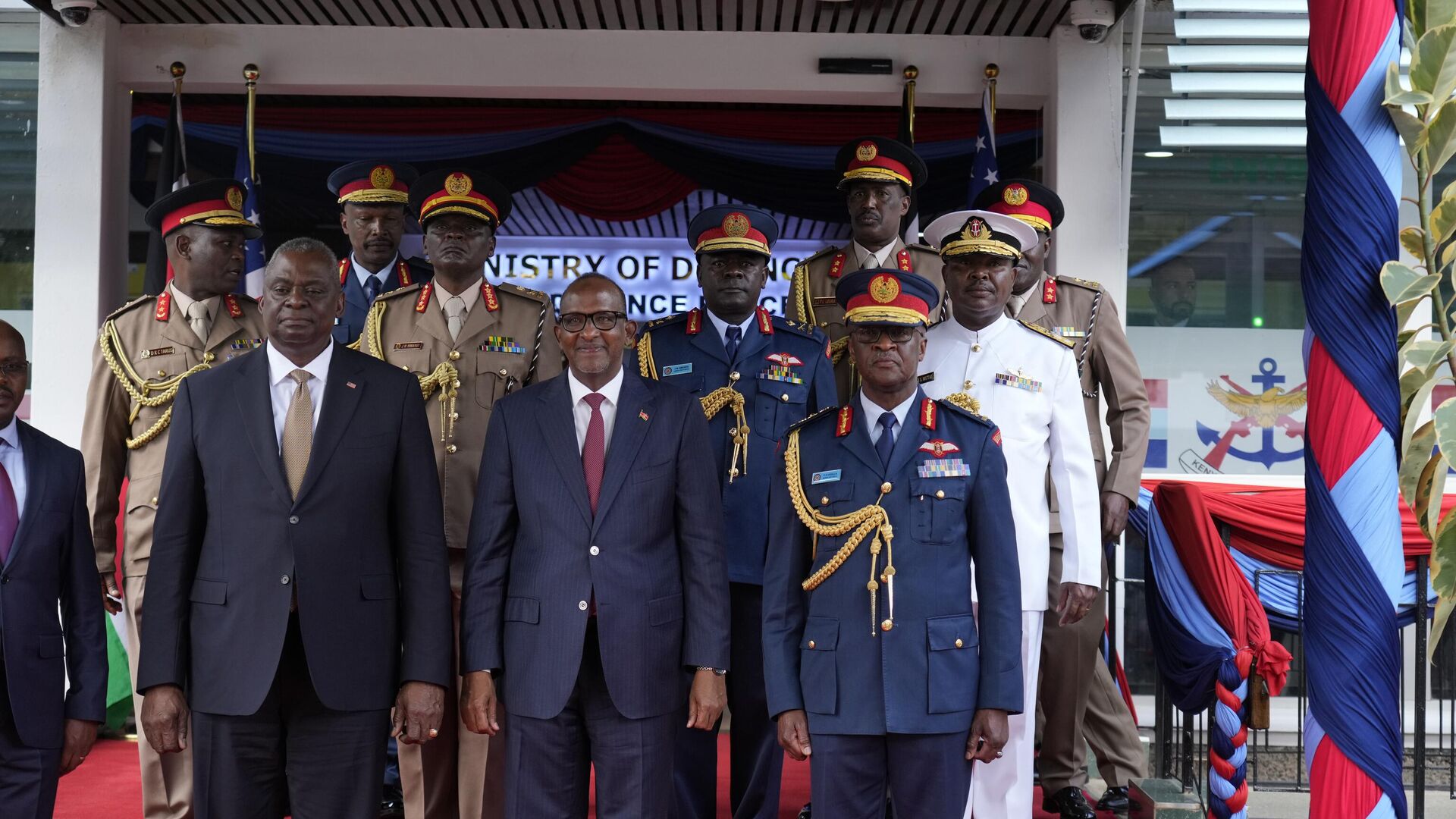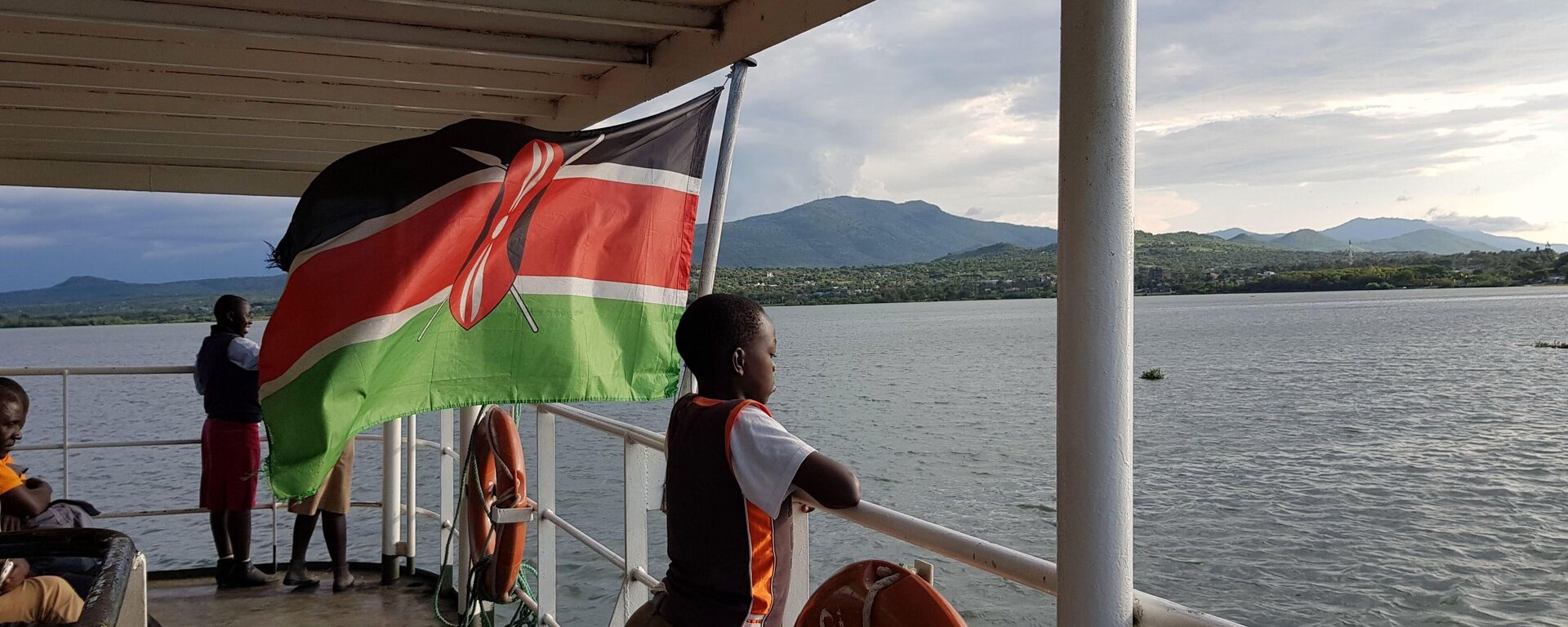https://en.sputniknews.africa/20231003/unsc-authorizes-kenya-others-to-dispatch-police-forces-to-haiti-for-support-mission-1062503669.html
UNSC Authorizes Kenya, Others to Dispatch Police Forces to Haiti for Support Mission
UNSC Authorizes Kenya, Others to Dispatch Police Forces to Haiti for Support Mission
Sputnik Africa
The Haitian government and civil society representatives requested the mission because months of chaos and deteriorating conditions was affecting civilians... 03.10.2023, Sputnik Africa
2023-10-03T11:22+0200
2023-10-03T11:22+0200
2023-10-03T12:36+0200
haiti
conflict
united nations (un)
security
united nations security council (unsc)
kenya
troops
bandits
international
sub-saharan africa
https://cdn1.img.sputniknews.africa/img/07e7/0a/03/1062504715_0:160:3072:1888_1920x0_80_0_0_f3f9b1586c3e90340a3be5cb5e8e4898.jpg
The United Nations Security Council on Monday authorized the deployment of an international security force to assist Haiti's national police in containing the escalating gang violence and reinstating peace across the conflict-ridden Caribbean country.The Council approved Resolution 2699/23 with 13 out of 15 members voting in favor, including African representatives from Mozambique, Ghana, and Gabon. Two members (Russia and China) abstained. This paved the way for Kenya and several other countries to send their pledged armed personnel to Haiti.The resolution authorized the Multinational Security Support (MSS) mission to help securing critical infrastructure and transit hubs, including airports, ports, schools, hospitals, and key intersections.Drafted by the United States and supported by Ecuador, the resolution was passed by the Council under Chapter 7 of the UN Charter, indicating that the situation in Haiti constitutes a threat to international peace and security.African countries in the Council, known as the A3, said the resolution would be a crucial step towards tackling the security crisis in Haiti, which is at present plagued by violent gangs.Martin Kimani, Kenya's Ambassador and Permanent Representative at the UN, recalled his country's offer to lead the mission and expressed gratitude to the Council for responding in an "exemplary spirit of cooperation". He reiterated Kenya's dedication to closely collaborating with Haiti's allies to set up the mission in accordance with the resolution.The initial request for the mission came from Haitian Prime Minister Ariel Henry, who asked for support in combating gangs that had seized control of critical installations in the county, including a local fuel depot.He noted that Russia is fully aware of the scale and urgency of the security challenges Haiti is facing, stressing that authorizing a military operation in the country without a clear understanding of the mission's parameters is "short-sighted" and an objective evaluation is needed. Kenya stated its intention to dispatch 1,000 police personnel, and the United States will provide $100 million funding for the program if Congress approves. Though Canada will not deploy troops, it declared its support for the initiative. Such countries as Jamaica, Antigua and Barbuda, Belize, Senegal, Spain, Suriname, and the Bahamas are expected to send their personnel.Haiti has been experiencing a prolonged socio-political crisis that worsened after the assassination of then-President Jovenel Moise in July 2021. The country has witnessed an upsurge in the activities of criminal groups, and the effects of natural disasters such as severe flooding, heavy rains, and earthquakes have exacerbated the humanitarian crisis.
https://en.sputniknews.africa/20230921/haiti-kenya-establish-diplomatic-relations-1062252957.html
haiti
kenya
Sputnik Africa
feedback@sputniknews.com
+74956456601
MIA „Rossiya Segodnya“
2023
News
en_EN
Sputnik Africa
feedback@sputniknews.com
+74956456601
MIA „Rossiya Segodnya“
Sputnik Africa
feedback@sputniknews.com
+74956456601
MIA „Rossiya Segodnya“
haiti , conflict, united nations (un), security, united nations security council (unsc), kenya, troops, bandits, international
haiti , conflict, united nations (un), security, united nations security council (unsc), kenya, troops, bandits, international
UNSC Authorizes Kenya, Others to Dispatch Police Forces to Haiti for Support Mission
11:22 03.10.2023 (Updated: 12:36 03.10.2023) The Haitian government and civil society representatives requested the mission because months of chaos and deteriorating conditions was affecting civilians. According to UN estimates, this year alone, there have been more than 3,000 reported homicides as well as more than 1,500 incidents of kidnapping for ransom.
The United Nations Security Council on Monday authorized the deployment of an international security force to assist Haiti's national police in containing the escalating gang violence and reinstating peace across the conflict-ridden Caribbean country.
The Council approved Resolution 2699/23 with 13 out of 15 members voting in favor, including African representatives from Mozambique, Ghana, and Gabon. Two members (Russia and China) abstained. This paved the way for
Kenya and several other countries to send their pledged armed personnel to Haiti.
The resolution authorized the Multinational Security Support (MSS) mission to help securing critical infrastructure and transit hubs, including airports, ports, schools, hospitals, and key intersections.
Drafted by the United States and supported by Ecuador, the resolution was passed by the Council under Chapter 7 of the UN Charter, indicating that the situation in Haiti constitutes a threat to international peace and security.
African countries in the Council, known as the A3, said the resolution would be a crucial step towards tackling the security crisis in Haiti, which is at present plagued by violent gangs.
"We highly praise Kenya for offering to lead the Multinational Security Support Mission. This allows us to move from rhetoric to action for a country whose history should lead us to question the conscience of every one of us," they said in a joint statement.
Martin Kimani, Kenya's Ambassador and Permanent Representative at the UN, recalled his country's offer
to lead the mission and expressed gratitude to the Council for responding in an "exemplary spirit of cooperation". He reiterated Kenya's dedication to closely collaborating with Haiti's allies to set up the mission in accordance with the resolution.
"With this action, the Security Council has lit a beacon of hope for the beleaguered people of Haiti," he said.
The initial request for the mission came from Haitian Prime Minister Ariel Henry, who asked for support in combating gangs that had seized control of critical installations in the county, including a local fuel depot.
Vasily Nebenzya, Permanent Representative of Russia to the United Nations, said Moscow maintains support for an intervention that could help Haiti, as long as it is well thought-out.
He noted that Russia is fully aware of the scale and urgency of the security challenges Haiti is facing, stressing that authorizing a military operation in the country without a clear understanding of the mission's parameters is "short-sighted" and an objective evaluation is needed.
"We hope that the country leading the Multinational Security Support mission will hold in-depth consultations with Haiti on their specific arrangements for the deployment of security forces," said Zhang Jun, Ambassador and Permanent Representative of China, adding that the mission should be fully in support of the Haitian people.
Kenya stated its
intention to dispatch 1,000 police personnel, and the United States will provide $100 million funding for the program if Congress approves. Though Canada will not deploy troops, it declared its support for the initiative. Such countries as Jamaica, Antigua and Barbuda, Belize, Senegal, Spain, Suriname, and the Bahamas are expected to send their personnel.
Haiti has been experiencing a prolonged socio-political crisis that worsened after the assassination of then-President Jovenel Moise in July 2021. The country has witnessed an upsurge in the activities of criminal groups, and the effects of natural disasters such as severe flooding, heavy rains, and earthquakes have exacerbated the humanitarian crisis.


